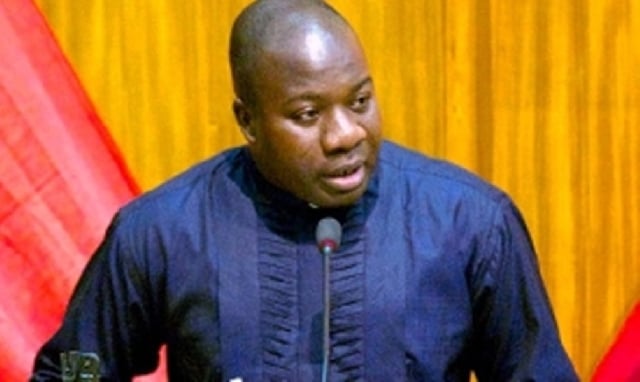Mahama Ayariga’s appointment as the Majority Leader in Ghana’s Parliament marks a significant transition in the country’s political landscape. His acceptance speech, delivered on January 23, 2025, outlines a vision for parliamentary leadership that prioritizes inclusivity, consensus-building, and responsible governance. Ayariga’s emphasis on these principles signals a departure from the potential pitfalls of a dominant majority, promising a more collaborative and deliberative approach to legislative processes. He echoes President Mahama’s commitment to avoiding the abuse of power, setting a tone of restraint and respect for the democratic process. This pledge is crucial in ensuring that the overwhelming majority held by the ruling party serves as a tool for national progress rather than a means of suppressing dissenting voices or furthering partisan agendas.
Ayariga’s commitment to inclusivity represents a crucial aspect of his leadership philosophy. Recognizing the diverse interests and perspectives within the Ghanaian populace, he aims to foster a parliamentary environment where all voices are heard and considered. This commitment extends beyond mere representation to encompass active engagement with opposition parties and minority groups. By prioritizing consensus-building, Ayariga seeks to bridge political divides and forge common ground on critical national issues. This collaborative approach acknowledges the importance of diverse perspectives in shaping effective legislation and fostering a sense of shared ownership in the country’s future. The emphasis on inclusivity and consensus-building suggests a move towards a more deliberative and participatory democracy in Ghana.
The Majority Leader’s pledge to uphold the principles of probity and accountability further strengthens his commitment to responsible governance. By emphasizing these values, Ayariga acknowledges the importance of transparency and ethical conduct in public office. This commitment is essential in building public trust and ensuring that the government remains accountable to the people it serves. The focus on probity and accountability also serves as a safeguard against corruption and misuse of public resources, promoting a culture of integrity within the legislative process. In essence, Ayariga’s commitment to these principles aims to create a parliamentary environment where decisions are made with the best interests of the nation at heart, free from undue influence or personal gain.
Ayariga’s vision for Parliament extends beyond internal dynamics to encompass the broader goals of advancing democracy and national unity. He recognizes that a strong and effective Parliament is crucial for consolidating democratic institutions and fostering a sense of shared national identity. By promoting constructive dialogue and mutual respect, he aims to create a parliamentary environment where diverse viewpoints can be expressed and debated without undermining the unity of the nation. This commitment to national unity is particularly important in a diverse country like Ghana, where political and ethnic differences can sometimes create tensions. Ayariga’s leadership seeks to bridge these divides and promote a sense of common purpose among all Ghanaians.
The Majority Leader acknowledges the challenges that lie ahead in navigating the complex political landscape and achieving these ambitious goals. He recognizes that disagreements and obstacles are inevitable in the legislative process. However, he expresses optimism in the ability of Parliament to overcome these challenges through constructive dialogue and mutual respect. This optimistic outlook reflects a belief in the power of communication and collaboration to resolve differences and find common ground. By fostering a culture of respect and open communication, Ayariga aims to create a parliamentary environment where even the most contentious issues can be addressed in a productive and constructive manner.
Ayariga’s acceptance speech lays out a roadmap for a more inclusive, accountable, and unified Parliament. His emphasis on consensus-building, probity, and national unity signals a commitment to responsible governance and a more participatory democracy. While acknowledging the challenges that lie ahead, he expresses confidence in Parliament’s ability to overcome obstacles through constructive dialogue and mutual respect. This vision for parliamentary leadership promises a more collaborative and effective legislative process, one that prioritizes the interests of the nation and its people above partisan politics. The success of Ayariga’s leadership will depend on his ability to translate these words into action, fostering a truly inclusive and accountable Parliament that serves as a beacon of democracy in Ghana.


